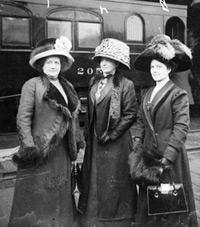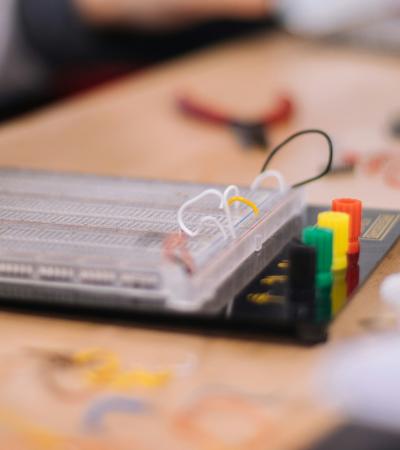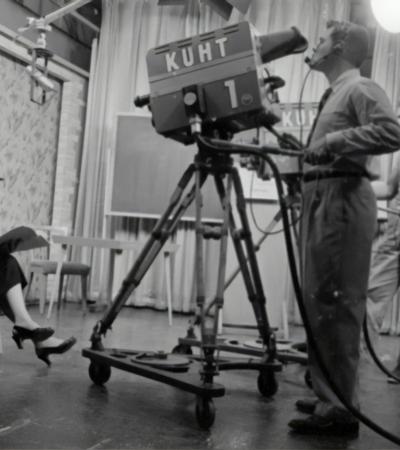
Women’s contributions to history only began to be formally celebrated and recognized in the 1970s, and in 1981, a congressional resolution officially established a “National Women’s History Week.” In 1987, the National Women’s History Project worked to expand the celebration to the entire month of March and received strong bipartisan support from both houses of Congress.
Library Programming
American Libraries offered an excellent articles by Kay Ann Cassell and Kathleen Weibel on programming for National Women’s History Month: (At Least) 21 Programming Ideas for Women’s History Month.
The Women’s Center at Eastern Connecticut State University (PDF) presented a number of events honoring Women’s History Month:
• Robin Morgan, award-winning poet, author and feminist activist, spoke about her role in the international women’s movement.
• “Good Lessons from Bad Women in History,” a one-woman performance presented by Dorothy Leeds, portrayed the lives of historically “disreputable” women.
• Daisy Cocco De Filippis, president of Naugatuck Valley Community College and author of an anthology on Dominican women authors, gave a presentation.
• Ruth Butler, professor at the University of Massachusetts at Boston, discussed her new book, Hidden in the Shadow of the Master: The Model-Wives of Cezanne, Monet, and Rodin.
• The Vagina Monologues, a spoken word performances dealing with reclaiming female sexuality was performed by Eastern students, faculty and staff as well as area residents.
• A viewing of the film Women’s Power, which looks at female spheres of influence in politics, economics, religion, medicine and arts, was followed by discussion.
• Recipients of the First Annual Ella T. Grasso Distinguished Service Award were acknowledged for their efforts towards advancing the rights of women and ending gender inequality.
• “Women’s Power Circle,” a two-hour workshop that targeted survivors of trauma, loss, violence, and abuse, and addressed feelings of despair in order to reclaim life and identity, was offered.
• “Third-Wave Feminists: Charting Our Course,” a panel discussion that addressed the challenges of third-wave feminists as well as the core issues confronted by today’s young and emerging feminists as compared to previous generations of women, was held.
The Richard Bland College Library created a women’s tribute area, where they offered books and screened films related to women’s history. The area also was used to display posters honoring women that students, faculty, and staff selected as deserving of recognition. Finally, a gift basket was awarded to the winner of a women’s history quiz.
Teaching Resources
The Library of Congress offers a number of resources on its Women’s History Month for teachers page, including links to resources from the Library of Congress the National Archives, the National Gallery of Art, and the National Park Service are offered. In addition, women’ history–related multimedia presentations are available, including interviews with authors, poets, musicians and artists, and first ladies, as are links to podcasts on a variety of topics in women’s history. Also check out links to related exhibits and collections and images.
Smithsonian Education has links to a variety of women’s history topics, including portraits of women in history, famous and influential women of the twentieth century, the history of women inventors, women in aviation and space, women in business, African American female artists, and Native American women.
Federal Resources for Educational Excellence (FREE) offers links to a wealth of resources from federal agencies.
The National Education Association (NEA) provides a number of women’s history–related links.
Read Write Think offers lesson plans, links to women’s history resources, and a short bibiliography.
Additional Resources
Infoplease has a wealth of links on its Women’s History Month page, including history and timelines, links for kids, prize winners and honorees, quizzes and crosswords, and links to more resources.
The U.S. Department of Defense celebrates women in military service, with biographies of women who have served as well as links to additional women’s history–related military sites.
The History Channel details the history of women’s suffrage, offers a video on women who have changed history, lists the women elected to the National Women’s Hall of Fame as well as women’s firsts, and provides trivia on women’s history.
A number of libraries have compiled bibliographies and Web links:
• Canton (Mich.) Public Library
• Finkelstein Memorial Library, Spring Valley, NY



